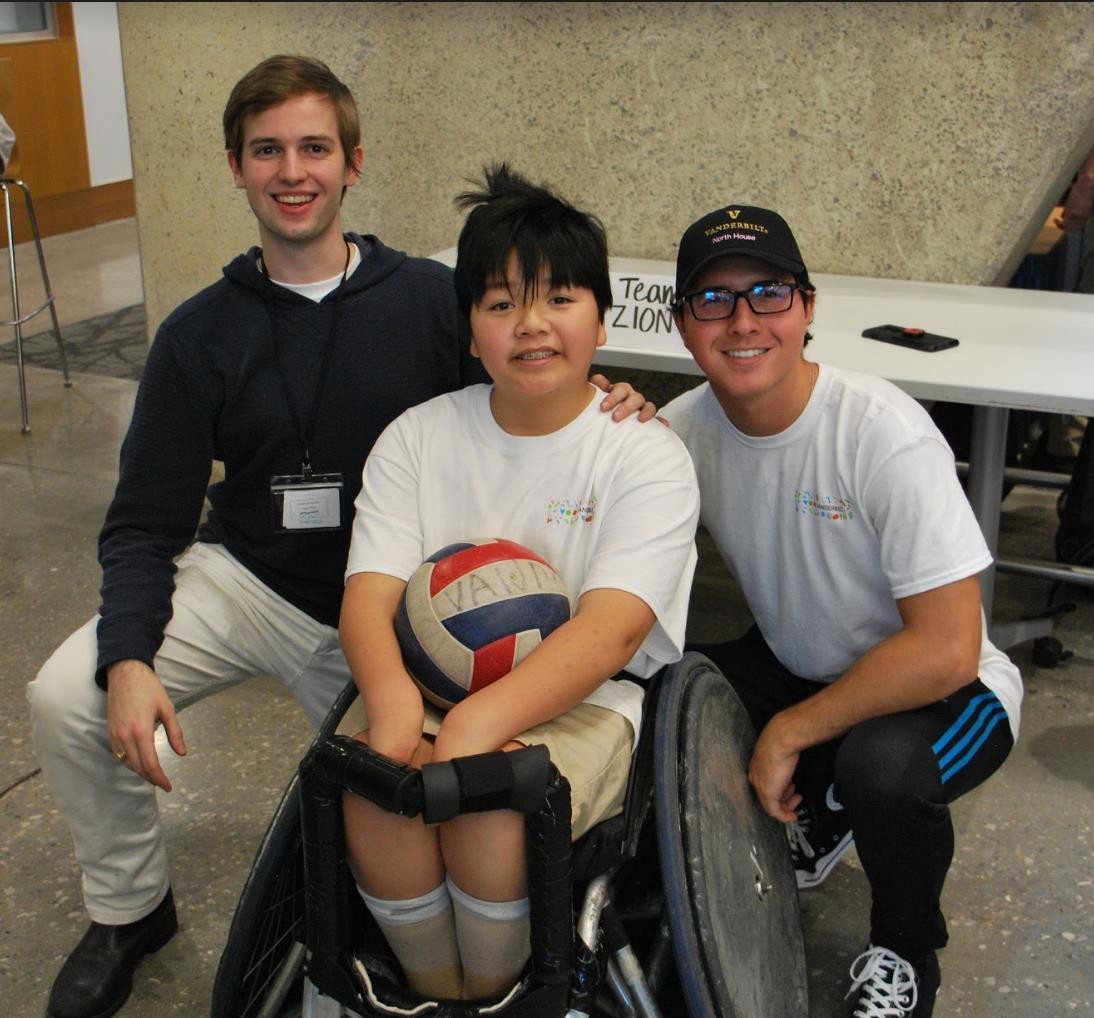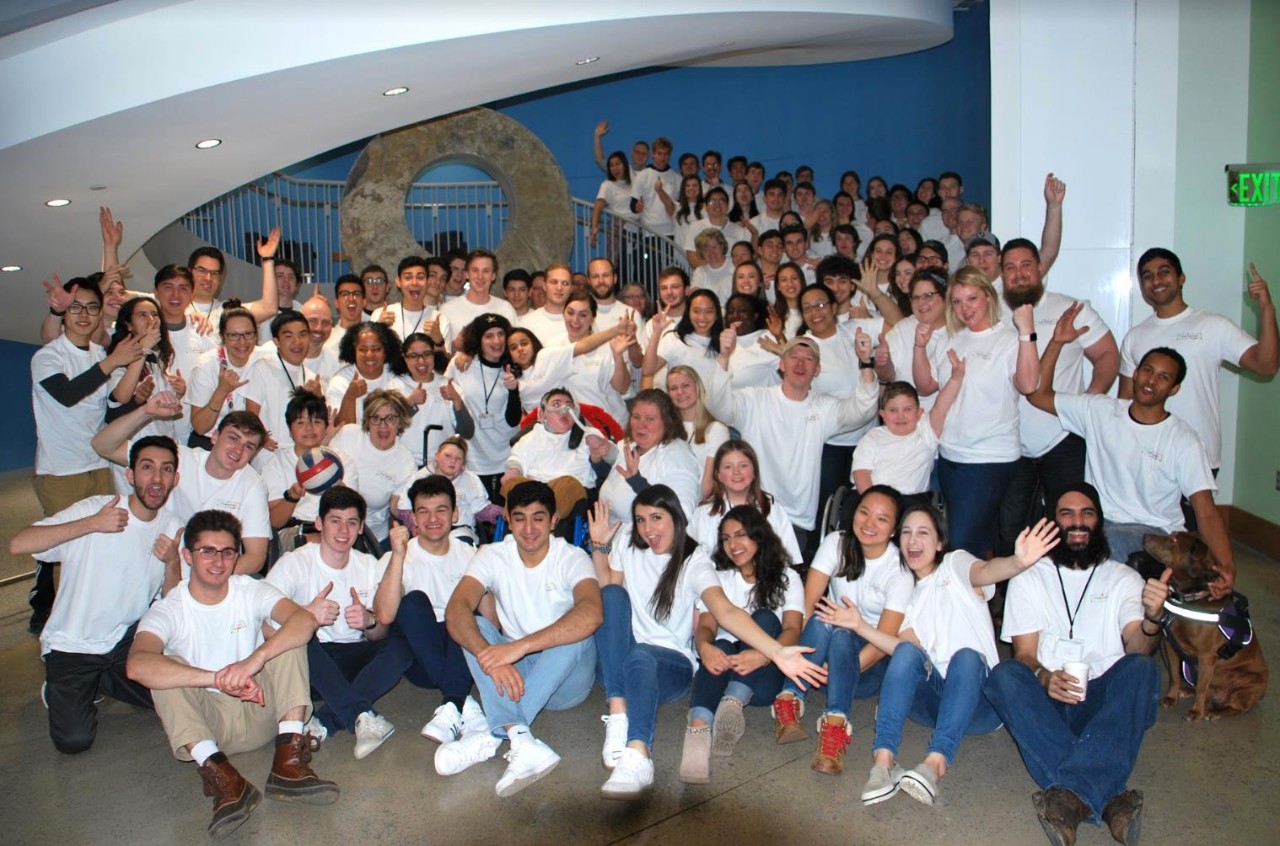Breaking Ground 101 - Tikkun Olam Makers: Vanderbilt
By Blake Hanan
Tikkun Olam Makers is an Israeli-based non-profit organization and global movement connecting developers and engineers to people with disabilities to develop open-source technological solutions for everyday challenges.
Disability affects people across the world regardless of race, religion, or economic status. The current system for solving the challenges people with disabilities face is driven mainly by large, corporate medical companies. It is often expensive, difficult, and only applies to the mass market.
Not only does this drag down the innovative nature of this emerging market, it leaves millions of people without options. As a group of students at Vanderbilt University in Nashville, Tennessee, we are working to solve this problem.
Our student organization is called Tikkun Olam Makers: Vanderbilt. Our goal is to overcome cost barriers and red tape in the assistive technology market. We are bringing the ideas of the global nonprofit organization Tikkun Olam Makers (TOM) to the Vanderbilt and Nashville communities.
The idea is that we group together teams of “makers” and “need-knowers” for a 72-hour Make-a-thon. During the event, we develop assistive technology for specific challenges these need-knowers are facing.
A maker is anyone with engineering, designing, hacking, or advanced technical skills. A need-knower could be a person with a disability, a care-taker, or a professional in the field, such as a special education teacher or an occupational therapist.
The need-knowers are placed on a team with anywhere from two to 12 makers, depending on the project. The goal is to promote human-centered design during the 72-hour weekend. We try to target disabilities that are:
- not common enough to support a business model that would create a solution, or
- for which the current assistive technology is too expensive for most people.
The Make-a-thon itself uses what we call the “Hacker Approach,” which is an improved – not necessarily perfect – solution that is open in nature. The products made during the weekend are created through a multi-step process that increases the quality of the solution with each step.
Designs made during the TOM Make-a-thon are later uploaded to an open source database that anyone worldwide can use and improve upon or develop themselves. This is where our goal moves past innovation and into providing affordable assistive technology globally.
In 2016, we began working hard to create the first TOM event, with the larger goal of building an ongoing TOM community at Vanderbilt and in Nashville. We looked to local companies and individuals for sponsorships and fundraising. We looked to the Vanderbilt and Nashville community for recruitment of makers and need-knowers, through students and professionals in these fields.
After a year-and-a-half of planning, recruiting, and fundraising, we finally got the project off the ground in early 2018. In January, we hosted our first successful TOM: Vanderbilt Make-a-thon with seven teams, helping seven need-knowers. There was a range of projects, from purely computer science and coding projects to purely mechanical building projects, and some that combined both.
For instance, Eli was a four-year-old boy with cerebral palsy. His challenge was an extremely expensive wheelchair that would continually need expensive adaptations to accommodate his growing body. Team Eli worked directly with Eli and his parents to develop a wheelchair prototype that did almost all of the same things as Eli’s original wheelchair, but for less than $100. They also did a side project of programming a joystick so that he could control his favorite drone on his own from the seat of his wheelchair.
We were so impressed with the passion and determination the Nashville community brought to these projects that the next year, we expanded operations. In January of 2019, we held our second successful TOM Make-a-thon, hosting 13 teams.
These projects had an even wider range of challenges, and broader skills needed to work on those challenges. There were iPhone/iPad apps created to help a classroom of children with autism. One team created a leg barrier and ball holder on a rugby wheelchair for an amateur rugby player. Another team made a sensor and braking system on a little girl’s walker for when she couldn’t see the barriers in front of her. There was even an off-road wheelchair created so a boy could go hiking with his family.
These are just a few examples of the designs created by Nashville’s own talented makers and need-knowers. We are continuing to hold Make-a-thon events and are very excited to see what these new projects have in store for the future of human-centered design and assistive technology.
If you want to learn more or get involved, you can visit our Facebook page. Simply search Facebook for “Tikkun Olam Makers: Vanderbilt.”
Author bio: Blake Hanan is a passionate biomedical engineering student and an undergraduate researcher at Vanderbilt University School of Medicine. Blake is also the community organizer and finance and fundraising chair for Tikkun Olam: Vanderbilt.
